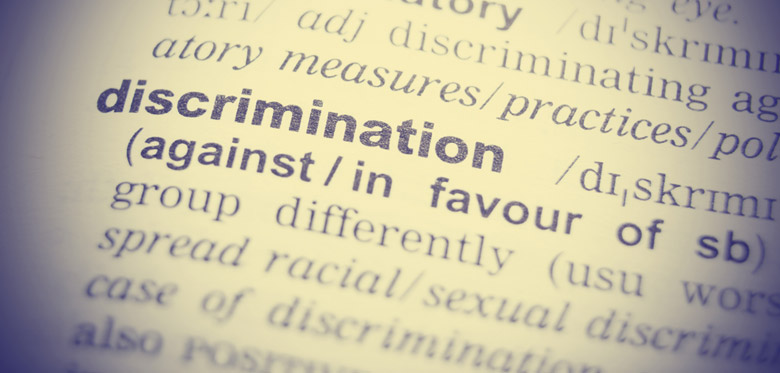Women of today have the right to dress and express themselves the way they wish to – or so you would think.
It has been well publicised in the media that a receptionist for a national company was sent home from work in December 2015 for refusing to wear high heels. It was reported that on the employee’s first day in the office, she was provided with a uniform which consisted of a black dress and jacket, which she was asked to immediately change into. It is understood that she was then told that the flat shoes she was wearing were unacceptable and she was to go out and purchase, with her own money, 2-4 inch heels. The employee questioned why she was expected to wear heels when the male receptionist was not, to which her boss then proceeded to laugh in response.
The impact of this story:
Since this concern has been highlighted, it has been somewhat of a legal hot topic. Only recently, MPs have been discussing the employee’s parliamentary petition on the issue, which is reported to have gained over 150,000 signatures. The MPs from the parliamentary committees for petitions and for women and equalities, have produced the joint report ‘High Heels and the Workplace Dress Codes’.
When the two committees considered the issue raised, it appeared that this situation was not unique. It has been reported that many women came forward to state that they believed that they had been subjected to sexist dress codes within their employment, which extended much further than high heeled shoes. The committee heard evidence pertaining to:
- Harassment of women in retail and reception jobs;
- Demands to wear shorter skirts and unbutton blouses for male customers;
- No visible roots on dyed hair.
Considering the strict legislation in place regarding discrimination, the question is posed as to why employers currently appear to be side-stepping the law and continuing to implement what are considered by many to be sexist dress codes?
The law: The Equality Act 2010
The Equality Act 2010 protects individuals who have been treated unfavourably because of a protected characteristic, which has subsequently caused them to suffer a detriment.
Sex is a protected characteristic under Section 11 of the Equality Act 2010.
Under Section 19 of the Equality Act an individual with a protected characteristic is protected against indirect discrimination. Indirect discrimination can occur when an employer applies a provision, criterion or practice (‘PCP’) that puts an individual at a disadvantage when compared to others. Therefore, a dress code that mostly applies to women puts them at a disadvantage to men. Taking the referenced circumstances as an example, a female receptionist required to wear heels through a 9-hour shift could cause a considerable amount of pain in comparison to her male counterpart who is not required to wear 2-4 inch heels. The burden would be on the employer to prove to a judge that the ‘PCP’ in place was a proportionate means of achieving a legitimate aim. As a male receptionist could undertake his job in flat shoes, it is apparent that a female’s capability to fulfil her job role, was not assisted by wearing 2-4 inch heels.
Under Section 27 of the Equality Act 2010 an employee should not be victimised for bringing a complaint of discrimination / discriminatory conduct. Victimisation is defined by the Equality and Human Rights Commission as “treating someone badly because they have done a protected act”. A protected act is defined as “making a claim or complaint of discrimination (under the Equality Act).”
‘High heels and the workplace dress codes’ report
The report has made it clear that MPs are of the view that the Government should increase financial penalties for employers found to have breached the law, to deter employers from continuing to implement sexist dress codes. They have also called on the Government to “review this area of the law and to ask Parliament to change it, if necessary, to make it more effective”.
A government spokesperson stated: “no employer should discriminate against workers on grounds of gender - it is unacceptable and is against the law. Dress codes must be reasonable and include equivalent requirements for both men and women.”
An interesting quote from the report can be found at paragraph 84 whereby the MPs state “it is clear that there are not currently enough disincentives to prevent employers breaching the law. While negative publicity will be a disincentive for many employers, this cannot and should not be relied on to prevent unlawful discrimination.” In the writer’s view, in circumstances such as these it appears that employers these days are too willing to risk a claim and therfore forget the impact that their discrimination has on their employees. Maybe if the financial penalties were increased, employers would not be so willing to ‘risk it’.
The future
A few decades ago, it was widely accepted that women would not generally wear trousers in the work place. In the writer’s view, it was due to women speaking up about the matter and stating that they had a right to do so, that the status quo at the time changed.
It is encouraging to note that as a result of the MPs’ report the Government Equalities Office are carefully considering the report, hopefully to ensure that employers comply with the law. We are unaware as to what changes this may bring but this could be considered progress.
If you feel that you have been subjected to discrimination, regarding your sex, please contact our specialist discrimination team for further advice on 01616 966 229.



Comments